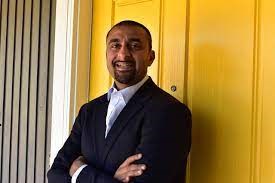Record-high prices in the forest sector, continual movement of goods along rail lines from the port in Prince Rupert and a busy construction industry is continuing the trend towards a healthy Prince George economy that is showing signs of continual improvement over the next month as COVID-19 restrictions are lifted.
Although the city’s unemployment rate jumped to 6.1 per cent in May, up from 5.5 per cent in April, Prince George is leading the province in its job recovery statistics and there are more people working here now than there were in the early months of 2020, just before the pandemic began.
“The country lost 68,000 jobs and the labour force survey was taken when we were in the circuit breaker and B.C.’s economy remains resilient,” said Ravi Khalon, B.C’s Minister of Jobs, Economic Recovery and Innovation. “In fact, Prince George is at 106 per cent of pre-pandemic levels, six per cent higher in job recovery that was there before the pandemic, and I would suspect that it’s is one of the highest in the country. It continues to outperform every jurisdiction certainly in B.C.
“It’s just a good time in Prince George for employment and we’re looking forward to, as we start restarting and opening up our economy, you’ll see those numbers continuing to go up.”
Out of a population of 80,900, there were 52,600 people employed last month in Prince George, up about 1,000 from April. From a labour force of 56,000 there were 3,400 unemployed in the city in May.
Provincially, the job recovery rate hit 99 per cent in May. B.C. gained 21,300 full-time jobs but lost 23,200 part-time jobs, mainly in the hospitality and accommodation sectors as a result of stricter public health restrictions imposed to limit the risk of COVID infections. B’C’s unemployment rate dropped slightly, from 7.1 per cent in April to 7.0 per cent in May (third-lowest in Canada), as compared to the national 8.2 per cent unemployment rate last month.
The deadline is July 2 to apply for the Small and Medium Business Recovery Grant and the province has increased the budget for that grant to $560 million, in combination with the circuit breaker relief funding already helping hospitality, fitness and tourism-related businesses impacted by the March 31 provincial health orders.
“It’s more than a half- billion dollars and it’s the highest per-capita supports in the country for people in businesses and I think that’s why we’re still seeing businesses operating and why we’re seeing employment numbers where they are, it’s because of the financial support that governments have put in place,” said Khalon.
To date, 17,000 B.C. businesses have applied for the Small and Medium Business Grant and more than 10,000 of those have been approved. The circuit breaker program is already supporting 50,000 businesses and Khalon anticipates 25,000 more applied before Tuesday’s deadline. So far, the two grant programs have provided $430 million.
The province is also providing tax credits for re-hiring employees, PST rebates for businesses that buy new equipment or machinery and has made permanent a 25 per cent reduction for restaurants buying liquor. On Tuesday, the federal government extended its COVID wage subsidy program to Sept. 25.
With infection rates continuing to fall, Phase 2 of the restart plan is expected to be announced on June 15 and that will once again allow British Columbians unrestricted travel within the province. Gyms that offer fitness classes will be able to increase capacity, banquet halls will reopen, smaller indoor weddings/parties will no longer be prohibited and restaurants and pubs will be allowed to serve alcohol until midnight.
“If things continue to go a positive way for July 1st, that means a whole host of things changing,” said Khalon. “Restaurants will go to pre-pandemic numbers within the operation and that will have major implications on economic recovery.”
In the United States, crowds are full in arenas for NHL and NBA playoff games now that a majority of the American population has received second doses of COVID-19 vaccines but Khalon says it’s too early to think mass crowd gatherings will be happening any time soon in B.C.
“I’ve seen those images of the hockey games and it gives me anxiety,” he said. “I’ve heard from many people who say that it’s great now we’re able to do these (steps to recovery) but it’s going to take me time to get comfortable doing them and so that’s reflected in the gradual restart plan we put out.
“We’re starting to hear from some businesses that are having challenges finding workers and I think over time as workers feel more comfortable, combined with minimum wage going up, I think there will be more incentive for people to enter the work force.”



